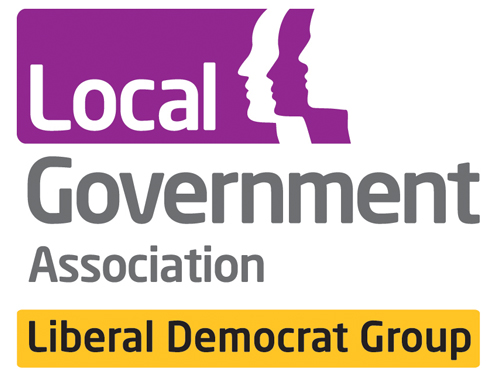
Main government grant funding for local services will be cut by a further £1.3 billion (36 per cent) in 2019/20 despite many councils already struggling to balance their books, facing overspends and having to make in-year budget cuts, the Local Government Association reveals today.
Almost half of all councils – 168 councils – will no longer receive any this Revenue Support Grant funding next year.
Between 2010 and 2020, councils will have lost 60p out of every £1 the Government had provided for services. Councils have gone to great lengths to ensure the savings they have been forced to make have as little impact as possible on the quality of services provided to their residents. They have embraced efficiency and innovation in a way that is not being replicated anywhere else in the public sector.
However, local government leaders warn the financial viability of some councils is now under threat and many others are increasingly unable to provide dignified care for our elderly and disabled, protect children, boost economic growth, fill potholes, build homes and much more.
Funding pressures and rising demand for services, such as adult and children’s social care and homelessness support, will leave local services in England facing a £3.9 billion funding black hole next year.
The LGA is calling on the Chancellor to use the Autumn Budget to tackle the immediate funding crisis for local government in 2019/20, as well as setting the scene for the forthcoming Spending Review to deliver a sustainable funding settlement for local government.
As part of its Autumn Budget submission, the LGA has mapped the likely impact of a further year of central government funding cuts and growing demand on the local services provided by an average upper-tier council.
The “Anycouncil” modelling shows residents living in a council area which sits in the mid-range in relation to current funding, levels of deprivation and outlook for economic growth should expect to see key local services further dramatically reduced in 2019/20. Millions of residents are living in areas where their council will have to consider similar measures.
Cllr Howard Sykes, LGA Liberal Democrat Group Leader, said:
“Unprecedented funding pressures and demand for adult and children’s social care and homelessness services is pushing councils to the limit. As a result, less money is being spent on the other services that keep our communities running such as libraries, local roads, early intervention and local welfare support.
“Losing a further £1.3 billion of central government funding at this time is going to tip many councils over the edge. Many local authorities will reach the point where they only have the funds to provide statutory responsibilities and it will be our local communities and economies who will suffer the consequences.
“In his Spring Statement in March, the Chancellor said he would invest in public services if public finances improve as recent forecasts have suggested. It is therefore vital that the Government addresses the growing funding gaps facing councils in 2019/20 in the Autumn Budget.
“If the Government fails to adequately fund local government there is a real risk to the future financial viability of some services and councils. If the residents of Anycouncil face the prospect of closures to leisure centres and libraries, cuts to vital home care for the elderly and more potholes on local roads, then millions of residents are living in areas where their council will be forced to do the same.
“Investing in local government is good for the nation’s prosperity, economic growth and for the health and well-being of our nation. It will boost economic growth, reduce demand for services and save money for the taxpayer and others part of the public sector.”
ENDS
NOTES TO EDITORS
Funding gap facing local services in 2019/20 and 2024/25 (all in figures £000s):
Adult social care -1,530,885 (19/20) / -3,556,035 (24/25)
Children’s services -1,108,194 (19/20) / -3,003,857 (24/25)
Homelessness -112,774 (19/20) / -426,192 (24/25)
Public health -460,479 (19/20) / -638,806 (24/25)
All other services funded from core spending power -642,030 (19/20) / -188,682 (24/25)
Total -3,854,361 (19/20) / -7,813,572 (24/25)
AnyCouncil – key facts:
- AnyCouncil is an upper tier local authority, which means it is responsible for the majority of local services in its area. These include, among other things, adult and children’s social care, waste collection and disposal, social housing, road maintenance and libraries provision. In all, Anycouncil delivers upwards of 700 different local services.
- Based on cash and inflation figures alone, AnyCouncil will have had to deal with funding reductions and inflationary pressures that combined are over £50 million per year, which is equivalent to about a quarter of its current spending. This £50.7 million is equivalent to £215 for each resident. Based on national averages, the services that AnyCouncil could fund each year with the £50.7 million it has lost would be all of the following:
- Over 1 million hours of Home care provision
- Over 12,500 weeks of care for the elderly
- At least 3 average sized libraries kept open
- Over 130,0000 potholes filled
- In addition, it could also have employed the following additional staff to directly provide services to its residents:
- 460 care workers
- 350 nursery assistants
- 180 social workers
- 30 school crossing patrol assistants
- In his Spring Statement in March, the Chancellor Philip Hammond said: “If in the autumn, the public finances continue to reflect the improvements that today’s report hints at, then, in accordance with our balanced approach, and using the flexibility provided by the fiscal rules I would have capacity to enable further increases in public spending and investment in the years ahead.” Latest monthly public sector borrowing figures published by the Office for National Statistics show borrowing at the end of August 2018 is at the level of £17.8 billion compared to the OBR’s full year forecast of £37.1 billion.